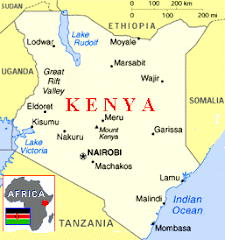A visit to South Africa showed there are still reasons to cry, and reason to hope.

Young South Africans need good leaders. Picture: Komati Foundation
Last year I spent five months living in Johannesburg, South Africa. I left Australia with warnings still ringing in my ears – the concerns of friends who told me about Joburg’s crime rate, the murders, how you couldn’t even stop at a red traffic light for fear of being mugged. But what an amazing country I discovered.
My first impressions: the unbelievably cloudless sky (which continued throughout winter), beautiful leafy suburbs with massive gated houses, and a real sense of community among locals. Twenty-four hours in and I had seen the most brilliant sunset ever, eaten typical African dishes, and met South Africans with accents varied enough to represent the 11 official languages. I was even living with a dog that had a Swahili name – Mrembo (beautiful). Awesome.
To get myself more acquainted with South Africa I had read Alan Paton’s Cry, the Beloved Country. It tells of a place where country and city are polar opposites, with strong family and community bonds in rural areas becoming somewhat lost in the crowds and anonymity of urban life. Upon arrival, I started with The Mind of South Africa: The Story of the Rise and Fall of Apartheid by Allister Sparks, and watched the movie, The Power of One, which added complex layers to my once straightforward understanding of the nation’s history.
I had thought that the Dutch arrived, colonised, didn’t get along with the native Africans, and now they do. Well, not exactly. I did not realise that there was also the English-Dutch tension, conflict between different black tribes, and the introduction of slaves from Indonesia and India that would all contribute to a whole new race of “coloureds”, who weren’t sure if they belonged on the black or white side of debate.
I watched Invictus before my trip, and having had read Nelson Mandela’s autobiography, Long Walk to Freedom, some years earlier, I was already filled with admiration for this man who showed such tireless dedication to the good of his country and immense wisdom in dealing with people on all sides of apartheid. I hoped against hope that I would bump into him during my stay -- even he has to venture out for groceries or a Maccas run, right? My friends laughed at this hope of mine but believe it or not … Yeh, I never met him. I did, however, meet a man who had worked with him, the former mayor of Johannesburg, Isaac Mogase.
A friend of mine knew Mr Mogase’s wife and when I went along for the visit I met her husband too. Upon hearing that I was a journalist, Isaac Mogase asked me to write his story. He had been hoping to do this for a while, not just as a memoir but also to make clear the values with which the ANC (African National Congress) had started out, as the party is now, unfortunately, only a shadow of what it was intended to be.
The ANC was once the party of hope and change, that which brought the nation into a new and promising era. Its great aim was a united South Africa in which the inequalities of colonialism and apartheid would be overcome, and where citizens would enjoy an ever increasing quality of life, pride in their country and unity amongst themselves.
Now the ANC is better known for corruption and scandal. Its leaders spend more time in the spotlight for stupid remarks that subvert their ideals rather than for their political endeavours. Take, for example, Jacob Zuma, current president of South Africa. He has been charged for corruption and rape in the past. He has been married six times, with four of his wives still around, another divorced from him and the last dead. He also has who-knows-how-many illegitimate children.
Next we have Julius Malema, who up until recently was president of the ANC Youth League. While I was in Africa, he was under investigation for corruption and money laundering. Here was a man who had failed most of high school, who has been pulled up many times for racist comments, and who doesn’t possess the expected charisma of a leader. I struggled to see how he had managed to gain such power.
It’s sad to admit, but South Africa’s leaders leave a lot to be desired. Instead of providing an example for the younger generations, they reflect some of the problems that a turbulent history has left in its wake. Following from this, it’s hardly surprising that certain lifestyles are accepted and are all too typical. Single mums are the norm, whether they fell pregnant in or out of wedlock. I found many girls to be very naive about how they deserve to be treated in relationships, and I found many young men awfully forward about what they were after. Polygamy also exists without secrecy – a man with his wives and multiple children picnicking of a weekend is not a rare sight.
Although I grew up hating the stereotype that sexual permissiveness was higher in Africa, the evidence was all around me in South Africa. There are high rates of promiscuity, prostitution and sexual violence, and South Africa is home to 17 per cent of the world’s HIV/AIDS sufferers. Every day, some 900 South Africans contract the virus and another 500 are dying from AIDS-related illness.
With so many struggles, the family structure is incredibly weak, and the example of the nation’s leaders is hardly turning this around. In such a context, a leader like Isaac Mogase is so important. He has managed to support his family, remain faithful to his wife and work through their trials together. Even Mrs Mogase, who had to deal with the consequences of her husband’s political career and his frequent spells in jail, remained loyal to him throughout. Together they brought up intelligent children who respect people of every skin colour. They have beautiful grandkids now that are lucky to have a stable family environment.
In my meetings with the Mogases, I asked them about what made their family and values different to other South Africans, and why. They mentioned the close-knit nature of the community they grew up with, a beautiful part of the African culture. They were lucky to have support from an extended network of family and friends, and they stressed the importance of their personal relationships with God and their church community. As Mrs Mogase put it, “If you suffer with support, this makes a difference!”
The Mogases also talked about the common attitudes of black South Africans, who make up the majority of the population. Since apartheid, and to make up for past injustice, many feel that they deserve special treatment without having to work hard. While understandable, this does tend to keep the racial divide alive. So while many will only give tit for tat, the Mogases feel that “There’s beauty in giving, especially when you don’t expect to get back.” As for working hard, Mrs Mogase put it best: “You must never complain about being hungry. If you’re hungry it’s because you’re too lazy to cook!”
It definitely isn’t all bad in South Africa. I don’t think I’ve ever witnessed such national pride – the flag was emblazoned on a myriad of surfaces from murals to hats to graffiti to car mirrors. When Australia won the rugby against South Africa, I learned not to bring it up if I wanted my company to remain pleasant.
In the first few weeks I thought a lot of guys were trying to pick me up, but it turned out they really were being friendly. There was also that friendly guy who stole my credit card, but then there were the others who helped me to look for him and contact my bank to cancel the card. There was even a guy who gave me an impromptu tour of the area since I had no money to get into the museum.
The NGO I worked for while there, the Komati Foundation, was an example of the effort to build the nation from within. They have established a hospitality school for young women, so that instead of falling pregnant early and discontinuing education, they can have more options. They run activities for young people that encourage the mixing between people of all social and racial backgrounds, and foster an environment in which they see there are more possibilities for their lives than the lifestyles of the country’s leaders.
I encountered many young people who had considered leaving behind the social difficulties of life in South Africa by joining the stream of emigrants, but who instead decided that it was people like them who could help to promote change in future generations. So while the nation still struggles to emerge from a volatile history, these committed young people give hope for a new generation of leaders who can lift the nation's cultural standards and allow all South Africans to walk tall under that clear blue sky.
By: Tamara Rajakariar is an Australian journalist who worked for Sky News in Sydney for a year before taking some time off to travel. She currently works as a writer in the fashion industry. She is also one of three young women running All.u.re Workshop — a project encouraging women to “be all-you-are”.




No comments:
Post a Comment